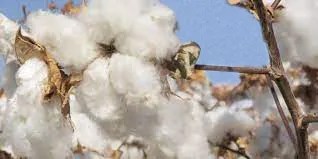From fleece to finished garment, Charl knitwear shows there is a slower, kinder side to fashion.
My British and Shetland wools

My British wool is very special because it has been certified by British Wool. This means that every single fleece has been graded by hand to ensure its quality. The environmental and animal welfare standards are guaranteed, so that when you receive your knitted garment you can feel sure that it has been crafted honestly and with integrity. The same can be assured of my Shetland wool which only comes from the Shetland breed of sheep who live on the Shetland Islands.
Very few brands actually carry the British wool certificate of authenticity. The frequently used phrase “spun in the UK” does not mean that the wool itself originates here. The vast majority of wool in the fashion industry comes from 1000’s of miles away in New Zealand , Australia or South Africa which, once it has been shipped over to Europe to be spun, considerably adds to the carbon footprint of the garment.
By choosing British wool you are supporting often rare breeds of our native sheep and the livelihoods of British farmers. You are supporting local resources whilst preserving our textile industry which has been producing woollen yarn and cloth for over a thousand years.
Wool is antibacterial, water resistant, biodegradable and breathable ( helping to regulate body temperature). It is extremely durable which means I can honestly say that my jumpers are made to last. When the garment has come to the end of its life it can be safely composted into the soil or sea enriching the soil and marine life as it degrades.
Read More: https://charlknitwear.wpenginepowered.com/journal/natural-sustainable-wool
My sustainable Alpaca yarn


Did you know that you can make 4-5 jumpers from one alpaca fleece? This is significantly more than any other wool producing animal. Like wool, it is sustainable, ecological, hard wearing, extremely soft, water resistant, warm and hypoallergenic. Alpacas are quiet, gentle animals who naturally live in herds which graze on the level heights of the Andes – which is where my alpaca yarn comes from. I have chosen to use the natural colours of the yarn where possible and only using Navy Blue dyed yarn as there is currently no natural dye alternative to this shade.
The alpaca yarn in my collection comes from a well established mill in Peru, founded in 1965 which pioneers research into sustainable farming methods and invests heavily in educating and supporting their local alpaca farmers. They also research into preserving the natural colours of the alpacas, ethical shearing processes and investing in housing and educational projects for the herders and local communities who live very high up in the Peruvian highlands.
Read More: https://charlknitwear.wpenginepowered.com/journal/natural-sustainable-wool
My GOTS certified organic 100% Cotton

Cotton is a wonderful fibre; it can be easily washed, takes colour beautifully, maintains its shape and can be knitted into a myriad of different stitches and weights. It feels fresh when worn next to the skin.
However, not all cotton is equal, as has become apparent in recent years. Traditionally, cotton is grown using a range of harmful chemicals, including pesticides and fertilizers, not to mention the chronic over farming of the land. It has also been a product of slave labour and even today, the exploitation of a workforce in certain countries. This is why it is so important to check the cotton we buy is produced using organic and ethical practices all the way through the process.
During my career working as a knitwear designer, I have spent a lot of time sourcing the finest and best cotton from around the world. I have used this experience to find some cottons that are really high quality and wear extremely well to use in my collection. Cotton goes through many more processes than other fibres, which has historically made is very difficult to trace and be sure that it has been grown and produced organically. However, in recent years, largely due to consumer demand, more research has been undertaken in the area of organic cotton farming and traceability from raw material to finished product. Today, 100% organic, traceable cotton can now be produced on a large scale.
Read More: https://charlknitwear.wpenginepowered.com/journal/100-cotton
My Factories


I work very closely with two small scale knitting factories, one in Nottinghamshire (UK) and the other in Perugia (Italy), both of whom I have known for many years and who are experts at producing high end knitwear for designer brands.
I make limited edition production runs to ensure quality and zero wastage. Any leftover yarn is used to knit my socks, hats and wrist warmers.
All my garments are fully fashioned – meaning that they come off the knitting machines already shaped into the pattern pieces so there are no “off-cuts”. They are all then hand linked together by experts. The garments are washed, pressed and checked over for any defects and measured to ensure they fit perfectly. The garments are folded with unbleached tissue paper and sent to me to be stored using natural lavender moth protection. As both factories are within Europe so they have a much lighter carbon footprint than most knitwear manufacturers.
My Packaging

Once you’ve ordered your garment, it is carefully folded in unbleached tissue paper, tied using ribbon made from recycled plastic bottles and packaged in my 100% natural recycled packaging ready to be sent to you! All of my swing tickets and care labels are made from recycled un-dyed card and recycled cotton.
My Knit Studio

Is situated in the heart of our barn, surrounded by fields full of sheep in the Warwickshire countryside. Everything is designed, researched and measured here to a soundtrack of birdsong and sheep!

